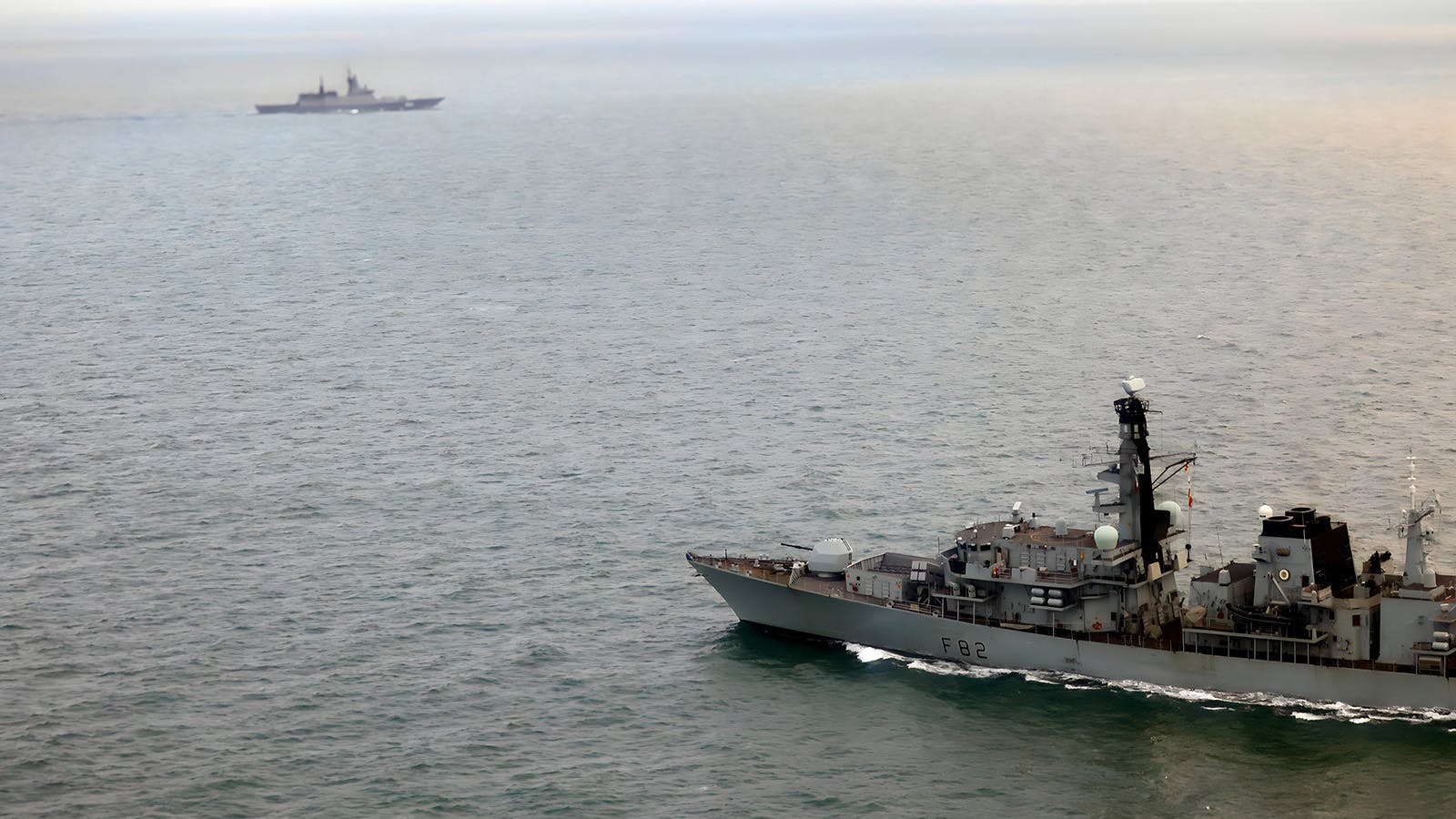Britain’s top military officer has called for NATO to confront Russia across every front, warning that deterrence depends on showing strength in all areas of competition, from nuclear forces to economic pressure.
Speaking in Washington, Admiral Sir Tony Radakin told the Centre for Strategic and International Studies that “the policy of NATO is to deter. And we deter by demonstrating to Russia that we are stronger, that we are ready to fight, and that we will beat them.”
He made clear that this was not limited to conventional military power, adding “that means contesting Russia in every domain – nuclear, land, sea, air, cyber and space – as well as in the diplomatic and economic arenas.”
Radakin linked this approach directly to Ukraine’s struggle, saying it was “imperative to double down on our efforts to support Ukraine’s ability to defend its courageous people against Russian aggression to preserve their hard-won freedom and independence through a just and lasting peace.” The war, now well into its third year, has exposed the limits of Russian power, but the Admiral warned that Moscow’s weakness makes it more dangerous, not less.
He described Russia’s current strategy as one of sub-threshold operations designed to harass the West without triggering direct conflict. “The very reason Russia is pursuing sub-threshold attacks against us is because Russia is unwilling and unable to do so through more overt means. Putin does not want a war with NATO. He cannot even win a war against Ukraine,” Radakin said. However, he cautioned that “Russia has more cause to be fearful of an Alliance of 32 than the other way around.”
The Admiral rejected the idea of a purely defensive posture in Europe, saying he was “wary of too great an emphasis on homeland defence, or a fortress Europe”. Instead, he argued for forward defence, projecting power outward rather than retreating behind NATO borders. This, he said, meant matching Russia not just in the skies and seas, but also in cyber warfare, space capabilities, diplomacy and economic influence.
Radakin’s remarks come at a time when NATO forces are expanding training missions and operational deployments in Eastern Europe, the High North and the Black Sea region. The alliance has also intensified its economic and diplomatic measures to constrain Moscow’s ability to sustain its war effort.
According to Radakin, the goal is not simply to respond to Russian actions but to create a strategic environment in which Russia recognises it cannot prevail. This, he argued, is the essence of deterrence and the reason NATO must be willing to operate in every domain.
